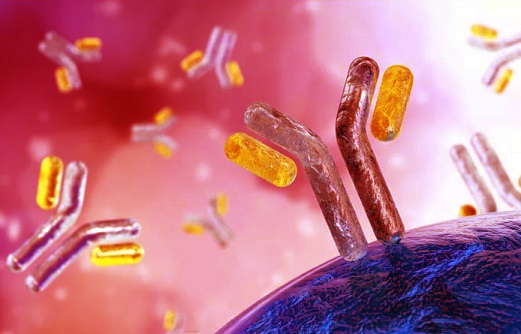SARS-CoV-2 Infections and COVID-19 Vaccines Increase Risk of Myositis-Specific and Myositis-Associated Autoantibodies
Nikhil Prasad Fact checked by:Thailand Medical News Team Dec 12, 2024 1 year, 1 day, 15 hours, 24 minutes ago
Medical News: COVID-19 has been the centerpiece of global health concerns since its emergence in 2019, but new findings suggest its implications extend beyond acute respiratory issues. According to a new groundbreaking study, both COVID-19 infections and vaccines are linked to an increased risk of developing myositis-specific autoantibodies (MSAs) and myositis-associated autoantibodies (MAAs). Conducted by a collaborative team from 11 major Spanish hospitals, this study sheds light on the intricate connections between COVID-19, its vaccines, and autoimmune disorders. These findings carry profound implications for healthcare and warrant further attention.
 SARS-CoV-2 Infections and COVID-19 Vaccines Increase Risk of Myositis-Specific and
SARS-CoV-2 Infections and COVID-19 Vaccines Increase Risk of Myositis-Specific and
Myositis-Associated Autoantibodies
The Context: What Are Myositis and Its Autoantibodies?
Myositis refers to a group of idiopathic inflammatory myopathies (IIMs) that cause progressive muscle weakness, inflammation, and, in severe cases, multi-systemic complications. MSAs and MAAs serve as key biomarkers in diagnosing these conditions, which are challenging to detect due to their varied clinical presentations and lack of standardized diagnostic criteria. These autoantibodies can indicate a predisposition to systemic autoimmune diseases, such as anti-synthetase syndrome (ASSD) or dermatomyositis (DM).
While genetic predisposition and environmental factors like infections have long been recognized as potential triggers for myositis, the onset of the COVID-19 pandemic added an alarming layer to this complex puzzle. Emerging evidence suggests that the virus and its vaccines can stimulate abnormal immune responses, leading to autoimmune manifestations.
The Study: Objectives and Methods
Aiming to explore the association between COVID-19 exposures and the development of MSAs and MAAs, researchers launched a multicenter observational study. The study encompassed data from 788 patients across 11 Spanish referral centers, including prominent institutions like the Hospital Clínico San Carlos in Madrid and the Hospital Universitario Donostia in San Sebastián.
Serum samples were collected between January and December 2022. Advanced line blot immunoassay (LIA) techniques were employed to detect 1,209 distinct autoantibodies, which were categorized into three primary groups:
-Myositis-specific anti-aminoacyl-tRNA synthetase (MSA-ARS), such as anti-Jo-1 and anti-PL-7.
-Non-ARS MSAs, including anti-MDA5 and anti-Mi-2α/β.
-MAAs, such as anti-Ro-52 and anti-Ku.
Patients’ medical records were cross-referenced to confirm histories of COVID-19 infection and vaccination. Vaccines were grouped into messenger RNA (mRNA) vaccines (Pfizer-BioNTech, Moderna) and non-mRNA vaccines (AstraZeneca, Janssen). Additionally, demographic, clinical, and laboratory data were analyzed to uncover trends.
Key Findings
Autoantibody Profiles and Prevalence
The study found distinct patterns in t
he prevalence of autoantibodies following COVID-19 exposure. Anti-PL-7 emerged as the most common ARS antibody, appearing in 14.85% of cases, compared to a lower prevalence of anti-Jo-1 (7.23%). Meanwhile, anti-MDA5, closely associated with COVID-19, was detected in 11.68% of patients.
In terms of overall autoantibody positivity:
-46.07% exhibited high positivity (HPOS) autoantibodies, most commonly anti-Ro-52.
-Low positivity (LPOS) cases were also significant, with anti-MDA5 and anti-SAE1 among the most frequent.
Demographic and Clinical Characteristics
The median age of participants was 61 years, with a female predominance (66.37%). Most referrals came from rheumatology or pulmonology departments, reflecting the multi-systemic impact of these autoimmune conditions. Among the patients, 39.72% presented pulmonary involvement, while 34.57% experienced muscle-related symptoms. Notably, 12.94% of patients were diagnosed with neoplasia, further underscoring the autoimmune complexity.
COVID-19 Infection and Vaccination
This
Medical News report reveals that
43.33% of vaccinated individuals experienced symptoms indicative of IIM, while 47.16% of COVID-19-infected individuals exhibited similar manifestations. Among those vaccinated, patients who received mRNA vaccines showed a higher prevalence of multi-specific autoantibodies compared to non-mRNA recipients. Combined vaccine administration (both mRNA and non-mRNA) significantly increased the frequency of autoantibodies.
Interestingly, certain autoantibodies were more prevalent post-vaccination than after natural infection. For example, anti-TIF1-γ, associated with dermatomyositis and cancer, was significantly higher among vaccinated individuals.
Subgroup Analysis: HLA Typing
A subset of patients underwent HLA gene analysis, revealing that specific alleles, such as HLA-DRB103 and HLA-DRB104, were more prevalent among those with MSAs. These genetic markers may predispose individuals to heightened autoimmune responses post-COVID-19 exposure.
Implications and Future Directions
The study’s findings underscore the need for vigilance in monitoring autoimmune markers in patients with a history of COVID-19 infection or vaccination. Healthcare providers should consider routine screening for MSAs and MAAs, particularly in individuals presenting with non-specific symptoms like fatigue or pulmonary complications. Moreover, further research is essential to elucidate the mechanisms behind these associations, including the role of molecular mimicry and genetic predisposition.
Conclusions
This Spanish multicenter study provides compelling evidence linking COVID-19 exposures to an increased risk of autoimmune responses, particularly involving MSAs and MAAs. The prevalence of autoantibodies such as anti-PL-7, anti-MDA5, and anti-TIF1-γ underscores the complex interplay between the virus, vaccines, and the immune system. While most patients recover without significant complications, a subset develops severe autoimmune conditions, including idiopathic inflammatory myopathies.
These findings highlight the dual-edged nature of the immune response to COVID-19. While vaccination remains critical for controlling the pandemic, understanding its rare but significant side effects is equally important. Future studies should aim to refine diagnostic criteria, improve serological testing methods, and explore personalized treatment approaches for affected individuals.
The study findings were published in the peer-reviewed journal: Biomedicines.
https://www.mdpi.com/2227-9059/12/12/2800
For the latest COVID-19 News, keep on logging to Thailand
Medical News.
Read Also:
https://www.thailandmedical.news/news/warning-various-studies-confirm-that-covid-19-increases-risk-of-developing-autoimmune-diseases-including-new-types-of-autoimmune-conditions
https://www.thailandmedical.news/news/breaking-doctor-from-uc-san-diego-warns-of-new-covid-19-manifestations-such-as-dermatomyositis-muscular-pains-and-alerts-about-lung-fibrosis
https://www.thailandmedical.news/news/mechanisms-of-muscle-pain-in-long-covid
https://www.thailandmedical.news/news/unknown-to-many-including-doctors-covid-19-causes-parsonage-turner-syndrome
